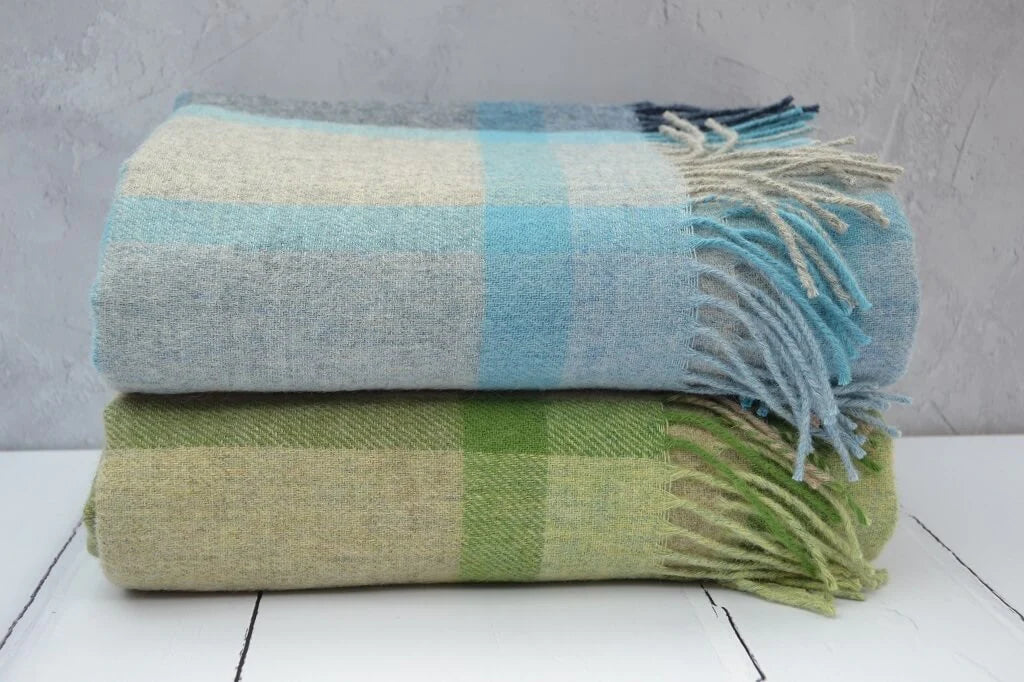Welsh Blankets
Candles & Soapery
Craft Courses
Hand Dyed Yarn

Cohana Product Stories - Nambu Paperweights
August 28, 2023 3 min read
Cohana Brand
The Cohana brand is a Collection of exquisite, high-quality tools and accessories for knitters and makers. Handmade by artisans in Japan using traditional techniques and processes.
The Cohana brand is a Collection of exquisite, high-quality tools and accessories for knitters and makers, handmade by artisans in Japan. Selection includes lacquer scissors, mini scissors, snips, pins, pin cushions and much more. Not only are these tools probably the best available for the job, but they are also beautiful if not exquisite.
Cohana uses traditional Japanese colours that reflect the changing of the seasons. The colour of Cohana is a traditional Japanese colour where you can feel the transition of the four seasons.
The brand name Cohana'is derived from the goddess Konohanasakuya from Japanese mythology. Konohanasakuya is beautiful like the blooming of cherry tree blossoms, and worshipped as a goddess of Mt. Fuji, the symbol of Japan, and symbolises prosperity.
Visiting Artisans - OISEI Foundry in Iwate, Japan
Nambu Iron Paperweights
In 1975, Nambu Ironware was designated as the first traditional craft by the Japanese government. From a early stage Cohana had a strong desire to create a paperweight using Nambu Ironware.
The OISEI Foundry created a stackable paperweight, adjusting the hole diameter so that it could be used as a pen stand, and using tasteful colours.
The OISEI Foundry is located in Haneda-cho, Mizusawa-ku, a “foundry town” with many other foundry-related companies in the area. Casting has been actively carried out in this area since ancient times. The company was started in 196 and the current Chairman is the sixth family member to be the boss!
History of Nambu Ironware
Originally, the casting industry in Mizusawa began in the late Heian period (794-1185) when the Fujiwara clan invited casting craftsmen from Omi Province to polish the skills of the local people.
Production began with special-purpose items such as bells and statues of Buddha for temples, and gradually expanded to household items such as baths, pots, and iron kettles. In the old days, it took more time and effort to make things than it does now, and things were used with great care by people. Iron is recyclable, so when it breaks, it can be melted down and reused to create something new, and it was valued as a wonderful material.
However, there was a time when Nambu ironware was not so favoured.
War Time
It was 1938, the military demand for Nambu ironware became so strong that iron kettles, pots, and other daily necessities had to be discontinued. Since the material was recyclable, even temple bells were collected, melted down, and turned into guns and airplane parts. Production of non-military ironware began in 1947.
The Foundry Today
The foundry today is maintaining the traditional manufacturing methods that have been handed down by the craftsmen and their predecessors and making the most of the unique texture of Nambu ironware.
About FelinFach
Located in Pembrokeshire Wales, our ethos is defined in the three words...
NATURAL TRADITIONAL HANDMADE.
- Hand woven iconic Welsh blankets and Welsh tapestry blankets.
- Handmade candles, candle accessories, Candle Making Workshops and soapery.
- Natural Dyeing Craft courses.
- Yarn shop, hand dyed yarn, yarn bowls, project bags, tools and accessories for knitters and crafters.
- Welsh Gifts, souvenirs, made in Wales, handmade in Wales.
We are a proud supporter of Americymru, the Campaign for Wool, Global Welsh and Red Dragon America.
Last updated 27th August 2023
Updates and Offers
Subscribers are first to know on all updates, new products, discounts and offers …
Recent Articles
-
Yarndale September 2024
28th and 29th SeptemberJuly 14, 2024 -
Citronella Candles for 2024 Now Available
July 11, 2024
-
Welsh Blankets
New Preseli Blanket in Caernarfon PatternsJuly 06, 2024 -
Plastic Freedom
Plastic Free JulyJuly 02, 2024 -
Discovering the Wonders of Handmade Candles
July 01, 2024
-
New Hand Dyed Yarn Website Offers
5% to 15% Discounts
ENDS TODAY 30th JUNEJune 30, 2024 -
Hand Dyed Yarn UK - Introductory Offers End 30th June
June 20, 2024
-
Welsh Blankets - Traditional Caernarfon Portcullis Patterns
June 19, 2024
-
NEW Candle Making Workshop Dates 2024
June 14, 2024
-
NEW Botanical Inks Website Pages
June 07, 2024
Heading
Text area can be used for details about blog authors or general information.


















